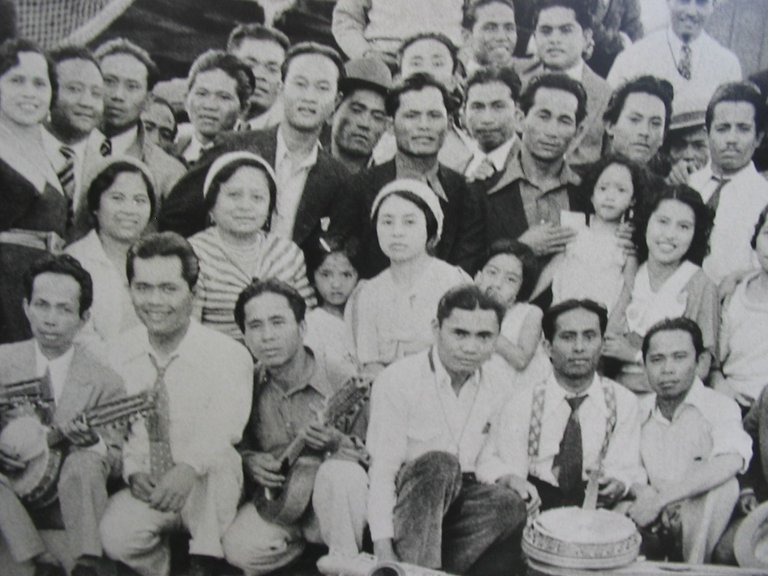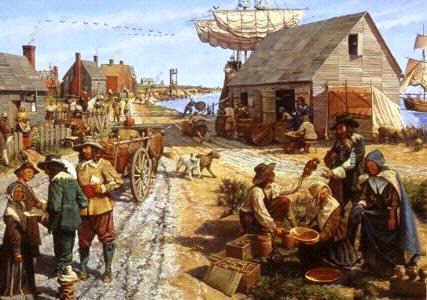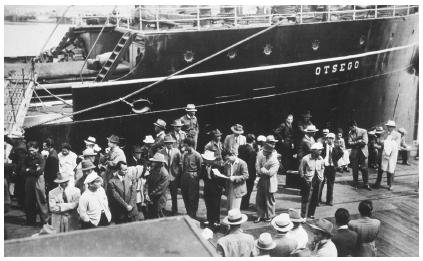Psychological Experiences of Filipino American Immigrants

Image Source
As a result of the long colonial history of Filipinos and the exceptionally American atmosphere of postcolonial Philippines, numerous researchers from different controls have theories that colonialism and its inheritances may assume real parts in Filipino resettlement to the United States. In any case, there are no known experimental reviews in psychology that particularly explore whether colonialism and its belongings have affected the mental encounters of Filipino American immigrants preceding their landing in the United States.
Further, there is no current exact review that particularly explores the degree to which colonialism and its inheritances keep on influencing Filipino American immigrants' psychological wellness. In this way, utilizing interviews and studies with Filipino American immigrants, two reviews found that colonialism and its results are imperative variables to consider while conceptualizing the mental encounters of Filipino American immigrants.
In particular, the discoveries propose that;
(a) Filipino American immigrants experienced ethnic and social denigration in the Philippines preceding their U.S. entry
(b) ethnic and social denigration in the Philippines and in the United States may prompt the advancement of colonial mentality
(c) colonial mentality may have negative emotional wellness outcomes among Filipino American immigrants.
The two reviews' discoveries propose that the Filipino American movement encounter can't be totally caught by the intentional immigrant story, as they give observational support to the thought that the Filipino American migration encounter should be comprehended with regards to colonialism and its most treacherous mental inheritance.
Filipinos have one of the longest histories of movement to the United States, going back to 1587 when Filipino slaves on board Spanish ship ships arrived in what is presently known as Morro Bay, California—making Filipinos the principal Asians on U.S. soil. These early settlements were little, be that as it may, and in this manner they don't represent the vast quantities of Filipinos in the nation today. In reality, the 2010 Census announced that there are at present 3.4 million Filipinos in the United States, 1.7 million of whom are outside conceived, making them the third biggest American immigrant amass beside Mexicans and Chinese.
The later (start in the mid 1900s) inundation of Filipino immigrants into the United States can be followed back to when the Philippines turned into an American domain in 1898. Since they were viewed as U.S. nationals amid this time, Filipinos could undoubtedly enter the United States, and they essentially lived and worked in the western conditions of Hawaii, California, Oregon, Washington, and Alaska. A gathering of Filipino understudies, called pensionados, were additionally sent by the United States to think about in American colleges amid the mid 1900s, with the goal that these researchers would take what they gained from American organizations and apply them in representing and driving the Philippines when they returned home.

Image Source
The American colonial time frame was likewise when American instructors and school directors were sent to the Philippines to teach Filipinos with thoughts of American prevalence, development, and perspectives that added to the huge scale relocation of Filipinos to the United States in the mid 1900s. Decades after American colonial control formally finished in 1946, the heritages of American colonialism are still unequivocally felt in advanced Philippines. For instance, English keeps on being the essential dialect utilized for school guideline, formal government organizations, and other vital correspondences. It has been estimated that such practices send the message that English is the dialect of the informed and the humanized, and in this manner superior to indigenous Filipino dialects .
The support of American army installations in the Philippines until 1992 and the proceeded with nearness of American officers in the Philippines to prepare Filipino warriors has additionally been contended to be sending the message that Filipinos can't satisfactorily secure their nation and hence are as yet reliant on the United States for insurance. The proceeded with see for lighter-cleaned individuals as more alluring is likewise contended to send the message that normal Filipino physical attributes are not as attractive as European physical qualities.
Without a doubt, the wealth of skin-brightening creams, skin-fading items, and skin-helping facilities all through the Philippines is proof that the masses may have completely acknowledged this Western-driven standard for what is delightful and alluring. The proceeded with oppression, and low respect for, non-Christian, non-English-capable, and non-Westernized Filipinos is likewise contended to send the message that the more Western or American you look, think, and carry on, the happier and more acknowledged you will be. These inferiorizing messages that are as yet being spread and that are still exceedingly omnipresent in contemporary Philippines have their underlying foundations in colonial circumstances.
Hence, the extensive yearly quantities of Filipinos coming into the United States is not amazing, in light of the fact that numerous Filipinos may as of now have a self important view of America—a recognition that has been formed by hundreds of years of colonialism and an exceedingly American postcolonial atmosphere. This concise record of Filipino history uncovers that Filipinos' most punctual endeavors into what is currently known as the United States was because of Spanish colonialism. The history additionally recommends that the later extensive scale relocation of Filipinos to the United States might be impacted by American colonialism and its heritages.

Image Source
Such a colonial history is the fundamental reason that ethnic reviews researcher Yen Le Espiritu in 2003 contended that the Filipino American experience can't be comprehended in the commonplace intentional immigrant account, in light of the fact that as far back as the primary Filipino in the United States, to the mid 1900s, as of not long ago, Filipino migration has been impacted by colonialism and its heritages.
In this manner, the deliberate immigrant account, wherein people leave their nations of origin for better open doors in America, and wherein their nearness in the U.S. is not constrained upon them by the U.S. government or by white Americans , may not be totally exact for the Filipino experience, on the grounds that their attitudes may have as of now been formed by hundreds of years of colonialism in a way that mirrors a dismissal of anything Filipino and inclination for anything American.
Besides, the run of the mill migration worldview in psychology—wherein cultural assimilation and the anxiety related with it are expected to start when immigrants move to the United States—might be deficient, particularly for Filipinos with their broad colonial history, in light of the fact that the procedure of cultural assimilation may have as of now started for Filipino immigrants in their nation of origin.
This article will display two reviews that researched how colonial mentality may shape Filipino immigrants' impression of the Philippines and the United States preceding movement, and how contemporary mistreatment in the United States may keep on reinforcing inferiorizing sees about the Filipino ethnicity and culture, both of which may impact Filipino immigrants' psychological well-being. Before displaying the reviews, we initially give a diagram of colonial mentality and how it might impact the mental encounters and psychological well-being of Filipino American immigrants.

Image Source
Cultural Diversity and Ethnic Minority Psychology
By: E. J. R. David & Kevin L. Nadal
click here!This post received a 41% upvote from @randowhale thanks to @juvyjabian! For more information,
Welcome to Steemit :)
I follow u, follow me back if u want lot of fun and amazing picture every day.
interesting
Thanks
that is great that my family shares the same experience. thank you for your great article https://steemit.com/cold-war/@nguyenphucanh/anti-immigrant-politics-in-the-united-states-and-my-family-memories